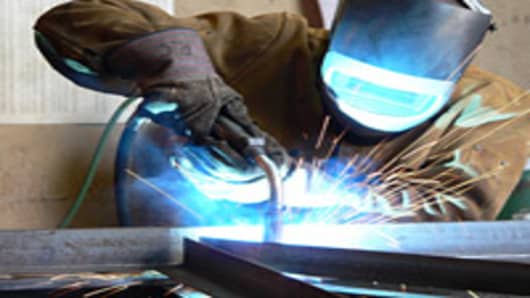Even with the abundance of openings, companies have to go further than ever to find the right person to put on the factory floor. Seco Tools in Troy, Mich., has 11 job openings, with some paying up to $90,000 annually. It is now offering to pay up to $4,000 for the continuing education of people it hires.
OMAX corporation in Kent, Wash., is offering current employees referral bonuses of several hundred dollars if they can bring in someone OMAX hires. The jobs pay between $35,000 and $50,000.
Still, OMAX, which builds water jet metal cutting machines, has 13 job openings it's unable to fill.
"Yes, I am a little bit frustrated," Say Dr. John Cheung, the founder and president of OMAX. "But on the other hand we recognize that this lack of skilled labor is the result of 20, 30 years of shifting demography, demographics and shifting attitude and we cannot turn that around overnight."
The problem is America's factories have become more complex and now require workers with more skills than in the past.
Typically, workers need computer, math and analytical abilities to operate sophisticated machinery. That reality may run counter to how many Americans look at blue collar jobs. Gone are the days when factory floors were dark, dirty, and inefficient.
"I think there is an opportunity and a disconnect that is occurring right now in our economy," says Papke.




